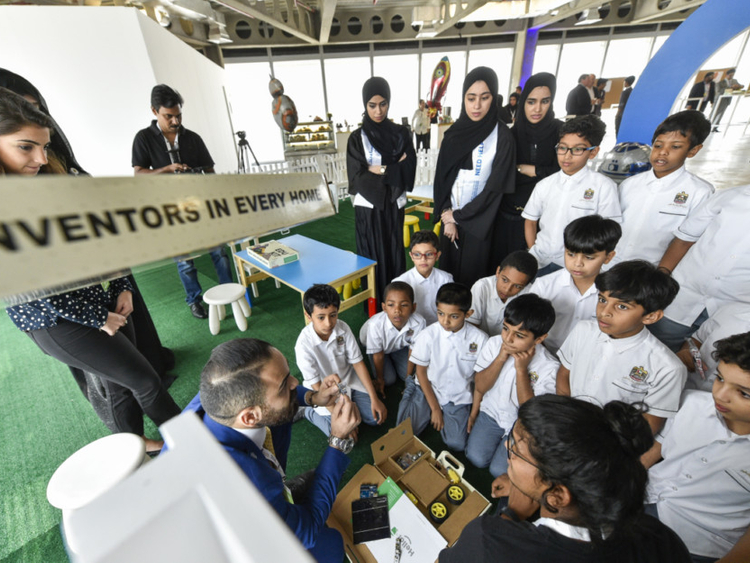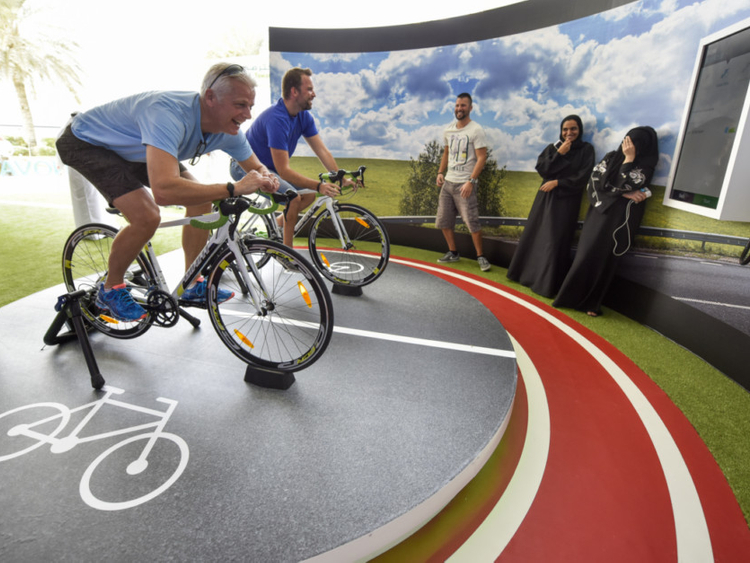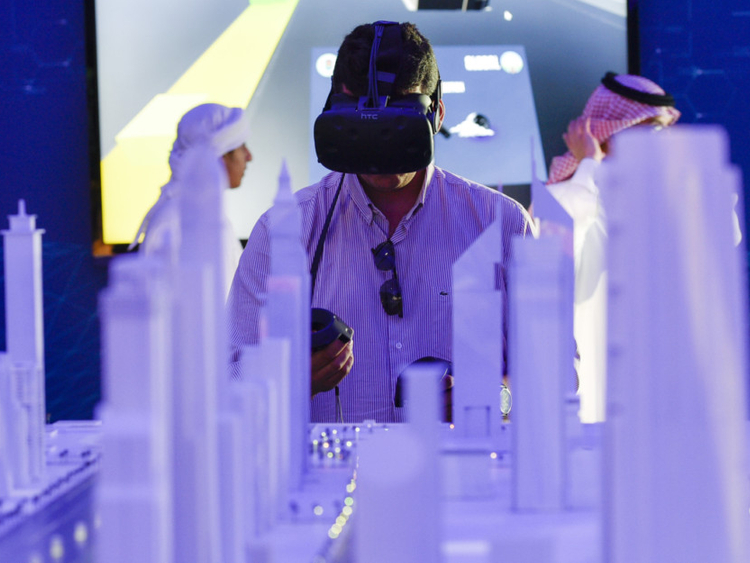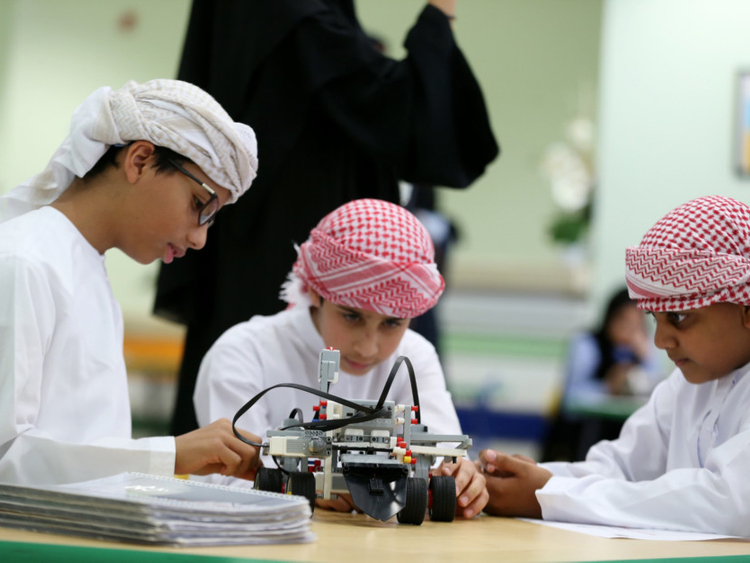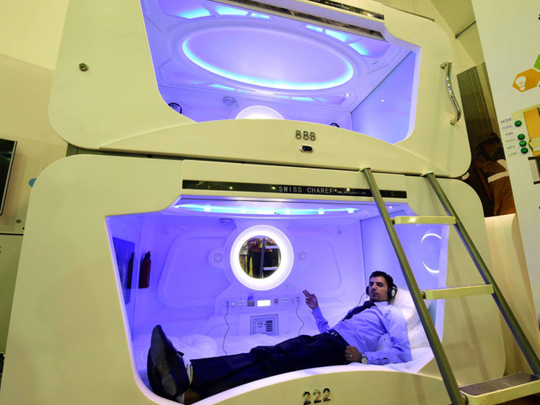
Abu Dhabi: As the most innovative Arab nation, the UAE plans to be among the world’s most innovative countries by 2021. The country, a crucible of innovation brimming with ideas, knows what it takes to achieve this target.
As he launched the National Innovation Strategy, His Highness Shaikh Mohammad Bin Rashid Al Maktoum, Vice-President and Prime Minister of the UAE and Ruler of Dubai, said there is a plan to be “among the most innovative nations in the world”.
The strategy will stimulate innovation in seven sectors including renewable energy, transport, education, health, technology, water and space.
The first phase includes 30 national initiatives to be completed within three years. These include new legislation, innovation incubators, investment in specialised skills, private sector incentives, international research partnerships, and an innovation drive within the government.
In August, the UAE was ranked first among Arab countries and 41st worldwide in the Global Innovation Index.
The index measured the performance of 128 countries and economies on how innovation drives economic growth and prosperity.
“We aim to provide all the means and capabilities to meet the requirements of the government’s vision, and make it one of the best governments in the world ... through the optimal use of resources to enhancing the services provided to citizens and residents,” said Shaikh Mohammad, after the Cabinet approved the Dh248 billion budget for the next five years on October 30.
Innovation got a big push in the 2017 budget through a Dh2 billion allocation to supporting government innovation, through the establishment of the Shaikh Mohammad Bin Rashid Al Maktoum Fund to Finance Innovation. It will provide financing solutions for innovators and incubation support to turn their ideas into projects that will support the national strategy for innovation and achieving the goals of Vision 2021.
Innovation is the path from an idea to social or monetary benefit — in effect, it encompasses the entire process involved in taking an original idea, improving it, and then developing it into a business, not necessarily commercial.
“This innovation strategy is a national priority for our development and progress programme. It is a primary tool to achieve Vision 2021 and an engine for the growth of distinctive skills and capabilities across the nation. We have always called for creativity in every field: this strategy is a concrete step to implement that vision. These initiatives around innovation will enhance quality of life in the UAE and take our economy to new horizons,” Shaikh Mohammad said.
An innovation-based economy will need to have the right infrastructure to create knowledge in the first place and then to diffuse, exploit and absorb the knowledge. In order to create knowledge, the UAE will have to focus on attracting new talents and innovation-based businesses inside the country, in addition to strengthening its existing local capabilities for producing knowledge.
The UAE’s founding father, Shaikh Zayed Bin Sultan Al Nahyan, recognised the opportunity that oil created for the UAE but also quickly saw the need to diversify the economy away from a reliance on hydrocarbons. Today, non-oil sectors make up 45 per cent of the UAE’s gross domestic product (GDP).
Current annual investment in innovation in the country is worth Dh14 billion, of which Dh7 billion goes to research and development.
Space research
The UAE’s Innovation Strategy indicates the importance of space research as a key element in building an advanced, high-tech based future for the UAE.
It is important to note that space exploration plays, and will continue to play, a remarkable role in the other six strategic sectors identified in the National Innovation Strategy. That’s why in 2014, the UAE announced an ambitious directive to accelerate space innovation by sending a UAE probe to Mars by 2021 — the UAE’s 50th anniversary.
National Innovation Strategy
It sets out four tracks of action:
Stimulating environment for innovation in the form of supportive institutions and laws;
Developing government innovation by institutionalising innovative practices — all government entities will reduce spending by one per cent and use this saving for research and innovation projects;
Encouraging private sector innovation by stimulating companies to adopt new technologies and develop innovative products and services; and
Qualifying individuals with highly innovative skills by concentrating on science, technology, engineering and mathematics (STEM), including the creation of educational material for schools and universities.
The strategy includes 16 indicators to measure progress.
Government-sector indicators: These include the percentage of innovative ideas and the proportion of budget allocated to innovation.
Private-sector indicators: include R&D investment and the knowledge profile of the workforce.
Global indicators: include an overall measure comparing countries’ innovation capabilities, as well as indicators for the protection of intellectual property, the creation of patents and the availability of scientists and engineers.
Intellectual Property system
Strengthening the Intellectual Property system is a key starting point to pave the way for an IP ecosystem that supports innovation.
This includes: Improved administrative processes in the registration of patents and doing away with formalities that may impede the smoothness of a registration process. Reviewing the legislation and improving the enforcement system to enable [patent] right holders have requisite strength to make patent protection and litigation worthwhile.
Strategy for the future
In September, Shaikh Mohammad launched the UAE Strategy for the Future — a road map that will take the nation to the next era of development.
The strategy aims to:
Steer the nation’s transformational growth by identifying the needs and challenges of the future;
Focus on building national human competencies in all the key sectors, strengthen international partnerships, and develop specialised R&D labs that will evaluate future challenges and opportunities; and
A dedicated educational institution to be established for driving predictive analysis and future development models, with UAE delegations to visit leading international universities to learn about the best practices in future planning.
Mohammad Bin Abdullah Al Gergawi, Minister for Cabinet Affairs and the Future, said the short-term vision would be until 2021 while the medium-term strategy will focus on planning for 2021 to 2026 and the long-term beyond that.
Quote: “The UAE Strategy for the Future will serve the government in addressing any shifts in global trends efficiently, and in identifying the challenges and opportunities. This will be followed up with scientific planning to evaluate the future scenarios, and implementing appropriate policies and action plans,” he added.
Ratified by the Ministry of Cabinet Affairs and The Future, the UAE Strategy for the Future will be implemented in three phases — short-, medium- and long-term — each with clear benchmarks and performance indicators.


